European Beer Bloggers Conference 2012
ABV: 7%
Origin: Alloa, Clackmannanshire, Scotland
Website: www.williamsbrosbrew.com
Alloa is the largest town in Clackmannanshire, central Scotland – once the smallest Scottish county in the days when the country still had them. A hundred years ago the town ranked alongside Burton upon Trent, Edinburgh, London and Tadcaster as one of the most important brewing centres in Britain but now boasts only a single brewery. It’s doubtful that the brewing dynasties of old would recognise much in the way things are done at Williams Brothers, who have become the last keepers of Alloa’s brewing flame through a very circuitous route.
When the Campaign for Real Ale (CAMRA) was founded in 1971, Maclay’s Thistle Brewery in Alloa was one of only four independent family brewers left in Scotland, and the only one north of the river Forth (the other surviving brewery in the town was by then owned by Allied, one of the ‘Big Six’, and was finally closed by Carslberg in 1998). The Thistle dated from 1870, but the Maclay family had previously brewed since 1830 at the nearby Mills brewery, established around 1804.
In 1999, Maclay became yet another old established British brewery turning its back on the tradition of vertical integration, closing down its brewing operations and converting itself into a pubco, in which form it survives today. Following the closure, former head brewer Duncan Kellock set up the Forth Brewery, a much smaller modern micro at Kelliebank to the southwest of the town, close to the river. Originally Forth had a contract to continue to brew Maclay branded beers, but also brewed for other commissioners – including an up and coming little business known as Heather Ales which was pioneering a new way of creating and marketing Scottish beer.
The Heather Ales story starts in Glasgow, on the other side of central Scotland’s watershed. Founder Bruce Williams ran a homebrew shop in the city where in 1988, so the story goes, he encountered a customer who had inherited from her Highland ancestors a recipe, originally written in Gaelic, for leann fraoch or heather ale. Intrigued, Bruce developed a contemporary version of the beer, which was first sold as Fraoch in 1992, brewed under contract at the tiny, and now closed, West Highland brewery at Taynuilt, Argyll and Bute.
Heather Ales was set up by Bruce and his brother Scott to market this beer and a growing range of other specialities made from unusual Scottish ingredients. The venture proved a great success – with their consistent quality, unusual flavours, attractive labels and national heritage appeal, Heather Ales were an early example of beers that reached out to an audience far beyond the traditional cask ale drinker, and were largely sold as bottled products, including through supermarkets and international exporters. Demand rapidly outstripped capacity and by 1993 the beers were being contract brewed at Maclay.
In 1995 the brothers established their own brewery at Craigmill, South Lanarkshire, but this only ever brewed cask beers, with bottled production still at Alloa. When Maclay closed, Duncan Kellock invited Bruce and Scott to invest in his Forth brewery project, and production of bottled Heather Ales relocated there. Then in 2003, with Maclay no longer commissioning its own beers, the brothers took over Forth wholesale and renamed it Williams Brothers, eventually bringing all the brewing in house at Alloa. As well as its own brands, the Alloa site is still used for contract bottling beers from several other Scottish breweries, including Fyne, Inveralmond and Traditional Scottish Ales.
I was always a little disappointed that Williams Brothers shied away from bottle conditioning its beers – the regular bottled products are filtered and usually pasteurised too. I asked Bruce about this several years back and he insisted this was to ensure the beers were consistent for their extensive bottled trade, but he did say they’d considered doing the occasional bottle conditioned speciality. It’s only very recently they’ve taken that step.
Nollaig – named with the Gaelic word for Christmas – was first launched late in 2011 as a limited edition bottle conditioned seasonal special packaged in an attractive bulbous growler-style litre bottle with a swing stopper. You’ll be lucky now to track down the original vintage as only 800 bottles were produced, but it may well be revived again this year. In line with the brewery’s long established penchant for unusual Highland flavourings, it’s enlivened with spruce tips, as well as Amarillo and Centennial hops.
A sample tasted at the 2012 European Beer Bloggers Conference was a rich amber, with a definite spruce note alongside apricots and peaches on a spicy, fruity aroma. An unusual and rather sweet palate had lightly resinous and oily spruce alongside more fruit, pepper, nuts and pastry. Hops came to the fore in a drying finish that became lightly bitter, pursing and herbal, with that rich fruitiness persisting. The flavours were seasonally appropriate without trying to do an impression of a Christmas pudding, and I really enjoyed it, though the sweetness and the hint of conifer wouldn’t be to everyone’s taste.
The Craigmill brewery, incidentally, now operates under new ownership as Strathaven Ales, having been finally sold by Williams Brothers in 2005. And Maclay still just clings on as a beer brand thanks to the Clockwork brewpub, now owned by the pubco, which every so often serves up a version of the defunct brewery’s Oat Malt Stout. It’s been a long way down from a big Victorian factory to a five barrel (8hl) brewpub kit, though there’s a satisfying circularity in the fact that the pub itself is not in Alloa, but Glasgow, where Heather Ales began.


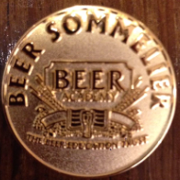
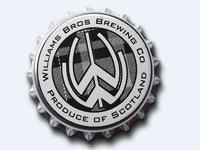
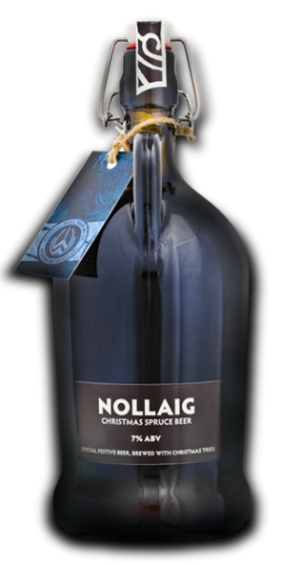
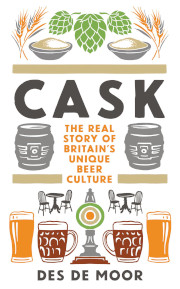
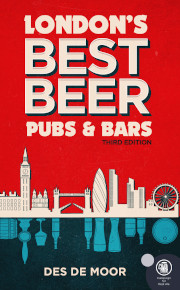
Hi
I was wondering where you can buy this beer Nollaig, as I have just bought some from Booths in Chorley Lancashire and wow what a beer.
Try the brewery, linked from above. I think they sell it mail order.
I recieved a bottle of this as a christmas present, and I am trying to find what its original RRP was when the 800 bottles went on sale.
I have come to drink this and thought i’d check out the price first and discovered that if the brewery had any left, they would be on sale for over £70 (sterling)
Anyone have a clue about the original shop price?
It’s £12 a bottle. Can get it from Booths, but not all of them stock it.